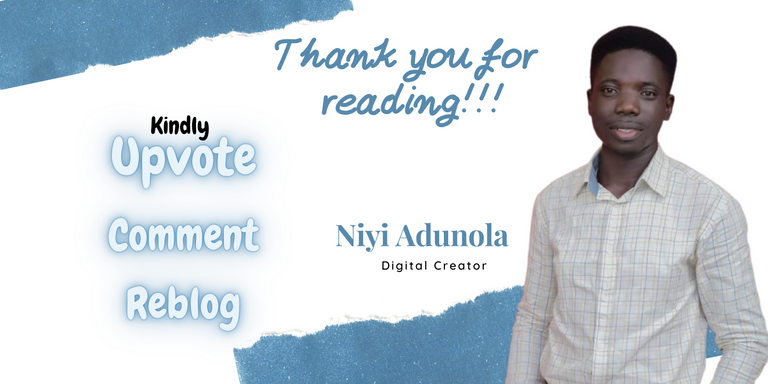En un mundo impulsado por la planificación, el control y la constante anticipación del futuro, la idea de "que sera, sera" se presenta como un recordatorio refrescante para abrazar las incertidumbres que la vida nos presenta. Esta frase en español, "que será, será", encapsula una filosofía profunda que nos anima a dejar de preocuparnos por el futuro y, en cambio, centrarnos en vivir en el momento presente. En esta publicación del blog, exploraremos la sabiduría detrás de "que sera, sera" y cómo adoptar esta mentalidad puede conducir a una vida más plena y tranquila.
El Origen de "Que Sera, Sera"
"Que sera, sera" es una frase que ha trascendido el tiempo y la cultura, y su origen se remonta a la canción del mismo nombre de 1956 de Jay Livingston y Ray Evans. La canción se hizo famosa por Doris Day, quien la cantó en la película de Alfred Hitchcock "El Hombre que Sabía Demasiado". Si bien la frase en sí es de origen español, su sentimiento resuena de manera universal. La letra de la canción expresa la idea de que tratar de predecir y controlar el futuro es un ejercicio inútil, ya que la vida tiene su propia forma de desenvolverse.
Dejar Ir el Control
Uno de los enseñanzas principales de "que sera, sera" es la importancia de renunciar a nuestro deseo de controlar cada aspecto de nuestras vidas. A menudo, nos vemos consumidos por preocupaciones sobre lo que podría suceder mañana, la próxima semana o años más adelante. Planificamos y elaboramos estrategias minuciosamente, tratando de asegurar un futuro que se alinee perfectamente con nuestras expectativas. Sin embargo, la realidad es que la vida es inherentemente impredecible y hay innumerables variables más allá de nuestro control.
Abrazar "que sera, sera" no significa abandonar la responsabilidad ni descuidar nuestros objetivos. Más bien, nos anima a liberarnos del apego a resultados específicos y a centrarnos en las acciones que podemos tomar en el momento presente. Al hacerlo, nos liberamos de la carga de la preocupación excesiva y la ansiedad, lo que nos permite abordar los desafíos de la vida con un sentido de apertura y flexibilidad.
Cultivar la Presencia y la Gratitud
Vivir en el momento presente es un aspecto fundamental de la filosofía "que sera, sera". Cuando constantemente nos preocupamos por el futuro, dejamos de disfrutar de la riqueza del aquí y ahora. Al redirigir nuestra atención al presente, podemos involucrarnos plenamente con las experiencias, relaciones y oportunidades que nos rodean. Esta presencia consciente nos permite apreciar los placeres simples de la vida y encontrar alegría en los momentos cotidianos que de otra manera podrían pasar desapercibidos.
Además, adoptar la mentalidad "que sera, sera" nos anima a cultivar la gratitud por lo que tenemos en el momento presente. En lugar de obsesionarnos con lo que nos falta o lo que podría salir mal, cambiamos nuestro enfoque hacia la abundancia que ya existe en nuestras vidas. Esta gratitud no solo trae un sentido de satisfacción, sino que también nos ayuda a desarrollar resiliencia frente a los desafíos.
Aceptar el Cambio y la Adaptabilidad
El cambio es constante en la vida, y la filosofía "que sera, sera" nos anima a aceptar esta realidad con gracia. Cuando dejamos ir las expectativas rígidas y permitimos que la vida se desarrolle naturalmente, nos volvemos más adaptables y abiertos al cambio. Esta flexibilidad nos permite navegar las transiciones de manera más fluida y encontrar nuevas oportunidades incluso en momentos de incertidumbre.
Conclusión
En un mundo que a menudo enfatiza la planificación y el control, la filosofía de "que sera, sera" ofrece una alternativa convincente, una forma de vivir que abraza lo desconocido y valora el momento presente. Al renunciar a la necesidad de controlar cada aspecto de nuestras vidas y al cultivar la atención plena, la gratitud y la adaptabilidad, podemos descubrir un sentido más profundo de paz y plenitud. Entonces, mientras continuamos nuestro viaje a través de la vida, recordemos la sabiduría de "que sera, sera" y abracemos la belleza de la incertidumbre. Después de todo, lo que será, será.|
ENGLISH TRANSLATION
Embracing the Philosophy of "Que Sera, Sera": Finding Peace in Uncertainty
In a world driven by planning, control, and constant anticipation of the future, the idea of "que sera, sera" stands as a refreshing reminder to embrace the uncertainties that life presents us with. This Spanish phrase, which translates to "what will be, will be," encapsulates a profound philosophy that encourages us to let go of our worries about the future and instead focus on living in the present moment. This blog post will explore the wisdom behind "que sera, sera" and how adopting this mindset can lead to a more fulfilling and peaceful life.
The Origin of "Que Sera, Sera"
"Que sera, sera" is a phrase that has transcended time and culture, and its origin can be traced back to the 1956 song of the same name by Jay Livingston and Ray Evans. The song was made famous by Doris Day, who sang it in Alfred Hitchcock's film "The Man Who Knew Too Much." While the phrase itself is of Spanish origin, its sentiment resonates universally. The song's lyrics express the idea that trying to predict and control the future is an exercise in futility, as life has its own way of unfolding.
Letting Go of Control
One of the core teachings of "que sera, sera" is the importance of relinquishing our desire for control over every aspect of our lives. Often, we find ourselves consumed by worries about what might happen tomorrow, next week, or years down the line. We meticulously plan and strategize, attempting to secure a future that aligns perfectly with our expectations. However, the reality is that life is inherently unpredictable, and there are countless variables beyond our control.
Embracing "que sera, sera" doesn't mean abandoning responsibility or neglecting our goals. Instead, it encourages us to release our attachment to specific outcomes and to focus on the actions we can take in the present moment. By doing so, we free ourselves from the burden of excessive worry and anxiety, allowing us to approach life's challenges with a sense of openness and flexibility.
Cultivating Presence and Gratitude
Living in the present moment is a fundamental aspect of the "que sera, sera" philosophy. When we constantly dwell on the future, we miss out on the richness of the here and now. By redirecting our attention to the present, we can fully engage with the experiences, relationships, and opportunities that surround us. This mindful presence allows us to appreciate life's simple pleasures and find joy in the everyday moments that might otherwise go unnoticed.
Furthermore, adopting the "que sera, sera" mindset encourages us to cultivate gratitude for what we have in the present moment. Instead of fixating on what we lack or what might go wrong, we focus on the abundance that already exists in our lives. This gratitude not only brings a sense of contentment but also helps us develop resilience in the face of challenges.
Embracing Change and Adaptability
Change is a constant in life, and the "que sera, sera" philosophy encourages us to accept this reality with grace. When we let go of rigid expectations and allow life to unfold naturally, we become more adaptable and open to change. This flexibility enables us to navigate transitions more smoothly and to find new opportunities even in uncertain times.
Conclusion
In a world that often emphasizes planning and control, the philosophy of "que sera, sera" offers a compelling alternative—a way of living that embraces the unknown and values the present moment. By letting go of the need to control every aspect of our lives and by cultivating mindfulness, gratitude, and adaptability, we can discover a deeper sense of peace and fulfillment. So, as we continue our journey through life, let us remember the wisdom of "que sera, sera" and embrace the beauty of uncertainty. After all, what will be, will be.
Thank you for stopping by.
|
